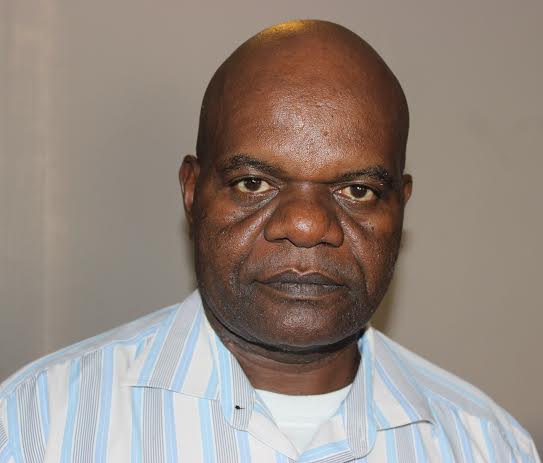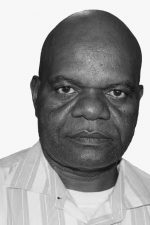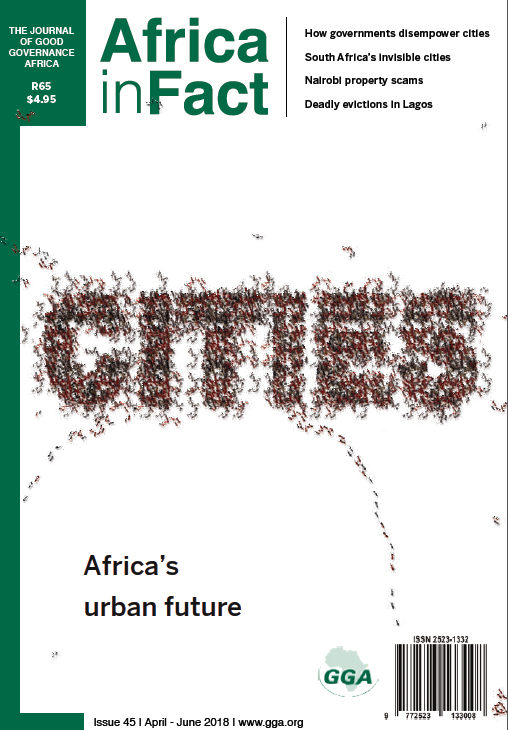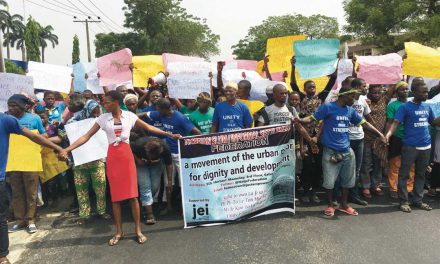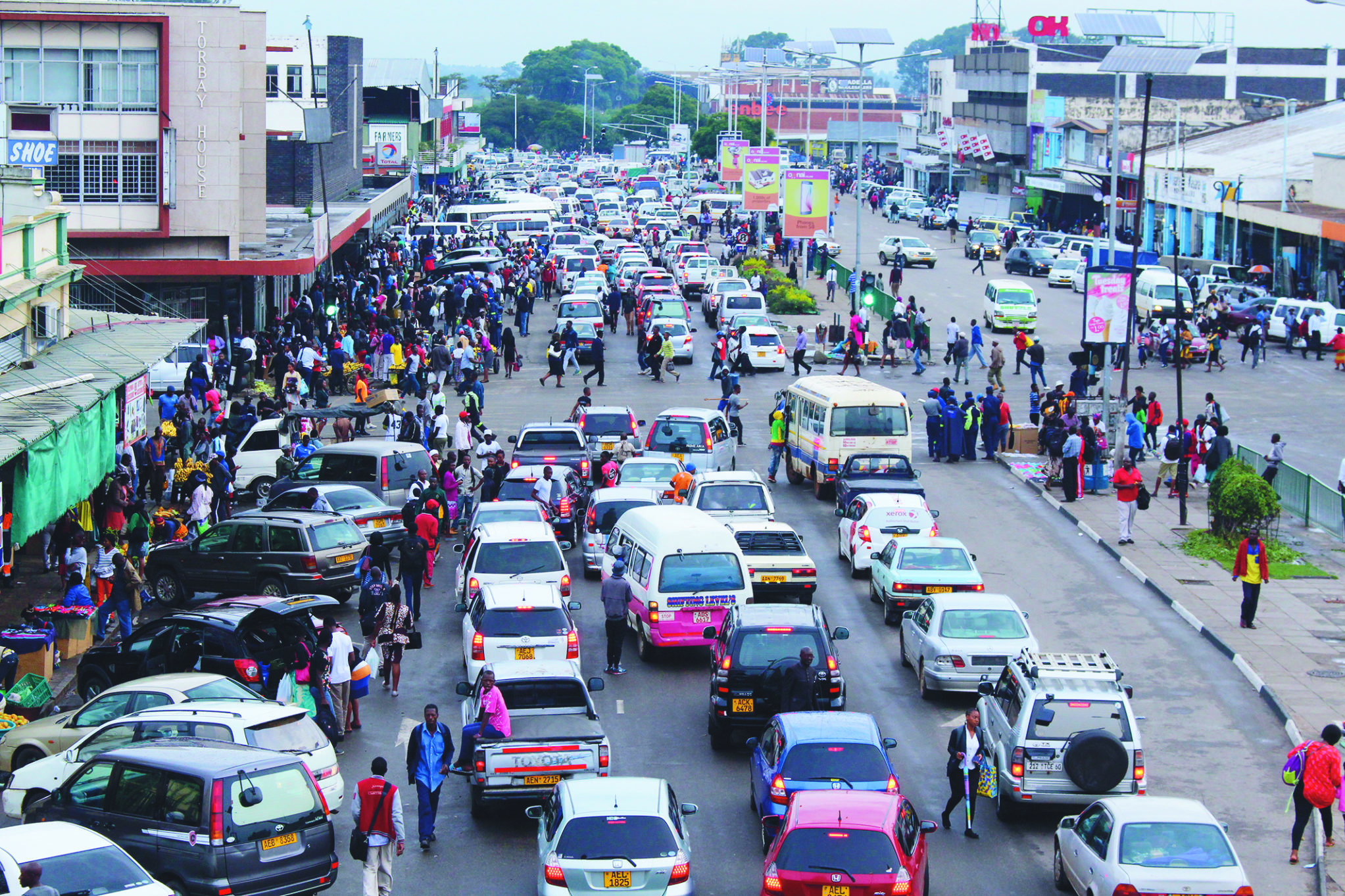
Congestion in Harare. Photo: Sadat Sanhehwe
Vested political interests have made it impossible for Harare’s mayor to implement a business strategy he believed would turn around service delivery in the city
Zimbabwe’s local government system was once considered to be one of the best in Africa, we learn from a 2004 government document. Indeed, the country’s robust local governments were cherished by many in the sub-region. Then disaster struck, in the form of the political machinations of the ruling Zanu-PF party.
Zimbabwe has 92 local authorities, of which 32 are defined as urban and 60 as rural. These local authorities draw their authority from the Zimbabwean constitution, the Urban Councils Act and the Regional, Town and Country Planning Act. Local authorities perform a variety of functions, chief among them the provision of public services, including water and sanitation, housing, refuse collection, road maintenance, and health and education.
Problems started for the country’s councils when the ruling party and its government abandoned the decentralised position that had been developed after independence in the 1980s. Recentralisation was a way to neutralise urban councils under the control of the opposition Movement for Democratic Change (MDC) party after 2000.
In the “harmonised” elections of 2000, which saw the presidential, parliamentary and local authority elections taking place on the same day, the MDC swept into office in all urban councils, restricting the ruling Zanu-PF party to rural-council management. It was not long before the ruling party amended the law to give the ministry of local government, public works and urban development a greater role in the running of local authorities.
Harare – the seat of power – has borne the brunt of government ire. The local government, public works and urban development ministry supervises or monitors the activities of local governments, including the services they offer to the public. But the ministry has taken its mandate in Harare a step further, firing mayors at will, appointing commissions to run council, dismissing councillors on flimsy grounds and refusing to approve the council budget. Indeed, the city authority has operated without a working budget for some years.
The MDC, which controls the Harare City Council (HCC), has on several occasions hit out at government, saying moves to fire sitting councillors and mayors were nothing but attempts by Zanu-PF to regain control of Harare. Elected council officials perceived as troublesome or as obstacles have been replaced by pro-ruling party commissioners.
Service delivery has suffered from government interference, according to Elias Mudzuri, a former MDC executive mayor. The then local government minister, Ignatius Chombo, fired Mudzuri in 2004, replacing him with his then deputy, Sekesai Makwavarara. However, soon after Mudzuri’s ouster, the MDC instituted a commission that investigated Makwavarara for her alleged failure to implement party directives in council. Makwavarara was accused of executing directives from Chombo in defiance of the party’s position to defy the minister. She was then expelled from the MDC and defected to Zanu-PF immediately afterwards.
“Service delivery in Zimbabwe had been on the decline since the 90s, but the downward spiral has been witnessed since 2000,” Mudzuri said. “(The) serious challenges in service delivery … are a result of failure by the central government of Zanu-PF to adhere to the standards and international best practice (relevant to) providing basic resources to people.”
To compound matters, in 2013 former President Robert Mugabe instructed all 92 local authorities in Zimbabwe to write off residents’ rates and water bills as part of the party’s election campaign. The directive – issued in the thick of electioneering as Zanu-PF sought to escape from an uneasy coalition government – had dire consequences for councils.
At present, many ratepayers are not bothering to pay their bills in the hope that Zanu-PF might issue another directive during its 2018 electoral campaign, expunging their debts to councils. Zanu-PF won a resounding victory in the the 2013 national election. Mugabe, with 2,110,434 votes, was declared the winner of the presidential election, giving him 61% of the total while his challenger, Prime Minister Morgan Tsvangirai, got 34% of the vote (Zimbabwe Electoral Commission, 2013), amid allegations of blatant vote rigging. Municipal service delivery, meanwhile, has declined to its lowest ebb.
In Harare, the little revenue still flowing into the municipality’s coffers is consumed by salaries, leaving little for infrastructure development and service delivery. Infrastructure has, therefore, deteriorated, often to the point where expensive replacement rather than maintenance will be required. Service delivery is non-existent, while the scourge of corruption has further affected the ability of councils to deliver services. The 2013 Mugabe directive put Harare “in a fix”, says HCC’s acting finance director, Tendai Kwenda, because it created an expectation of another such decree in 2018. Current tight liquidity conditions, revenue leakages and a general unwillingness to pay on the part of citizens were behind the council’s “high defaults”. Residential, commercial, industrial and government clients currently owe about $750 million. Residents alone owe the HCC $350 million.
The national ministry’s constant interference in local authority business has seen the HCC losing millions, which it is failing to pursue, says Mfundo Mlilo, chief executive officer of civic organisation Combined Harare Residents Association. “Apart from the disastrous debt write-off, seepage of raw effluent into the city’s main water sources is costing council millions every month,” he told Africa in Fact.
In addition, Harare funds Zanu-PF through the ministry of local government’s interference in its affairs, he said. Harare’s billing system is in disarray, resulting in millions being unaccounted for, lost in the system and finding its way into Zanu-PF coffers.
Zimbabwe’s economy continues to shrink due to tightening illiquidity, rising unemployment and a fast-disappearing formal sector. Indeed, the country’s main economy is now largely informal, with the largest number of vendors the country has ever witnessed plying their wares on the streets of cities and towns. In this context, council rates collection faces a challenge.
Town planner Wellington Jonga has branded Zanu-PF’s approach to local governance as “political banditry”. “In Zimbabwe’s urban councils, ‘full council’ debates and the conduct of council business in general have been politicised,” Jonga observed in a 2012 academic study. “Policymaking and management of council’s public goods and services have a political-party connotation or ingredient in their outlook.”
When urban-council business is divided along party lines, councillors adopt individual goals, rather than community or constituents’ goals and objectives, as the reason for their occupation of their positions, Jonga says. National political interference in local government is a major source of corruption, he argues. Ethical behaviour goes by the board as individuals seek permanent appointments or angle for national-level jobs. As a result, many urban councils in Zimbabwe are bankrupt, he says.
Sitting MDC Harare mayor Bernard Manyenyeni concurs with Jonga’s views. Manyenyeni, who has over 25 years’ experience in the finance industry, told Africa in Fact that vested political interests have made it impossible for him to implement a business strategy he believed would turn around service delivery in the capital city.
“As far as my party is concerned, firstly there are times when they fail to realise the basic political truth that the council is captured by Zanu-PF – people, processes and politics,” Manyenyeni said. “There are also times when my party fails to realise that we ourselves are in council, not in opposition.”
Local government experts agree that the ruling party has reduced local authorities to appendages of central government, and hence of ruling party political considerations. “Elections, the only viable weapon available to local-government residents, have been rendered useless,” observed the Zimbabwe Institute as long ago as 2005. “Government can remove the elected officers with impunity and deny the electorate an opportunity to replace the dismissed policymakers.”
Moreover, Zanu-PF has preferred to appoint ministers of provincial and metropolitan affairs to spearhead urban development – in contravention of the constitution – which establishes provincial councils consisting of elected officials (including MPs). The latter arrangement is more responsive and accountable to the local level of government, while the former is accountable to the appointing office.
Indeed, local government in Zimbabwe has been so hollowed out by years of national political interference that there are concerns the country could once again face a cholera epidemic, as it did in 2008 when more than 4,000 people died and some 100,000 others were affected.
Government health services were stretched to the limit. The economic meltdown of a country failing to “fit” well in a global village because of political divisions resulted in a breakdown in methods to combat a disease that can easily be managed when due collaborative effort is applied, according to a 2015 study in Review of Environmental Health of the outbreak. The outbreak was only contained after the international community intervened.
Barnabas Thondhlana has worked for Dow Jones and Bloomberg newswires as their Zimbabwe correspondent. He is the publisher of three community newspapers and a national daily, and a media trainer in investigative journalism. He has been instrumental in the formation of several independent newspapers, including the Zimbabwe Independent, The Daily News, The Daily News on Sunday, Newsday and The Observer.


